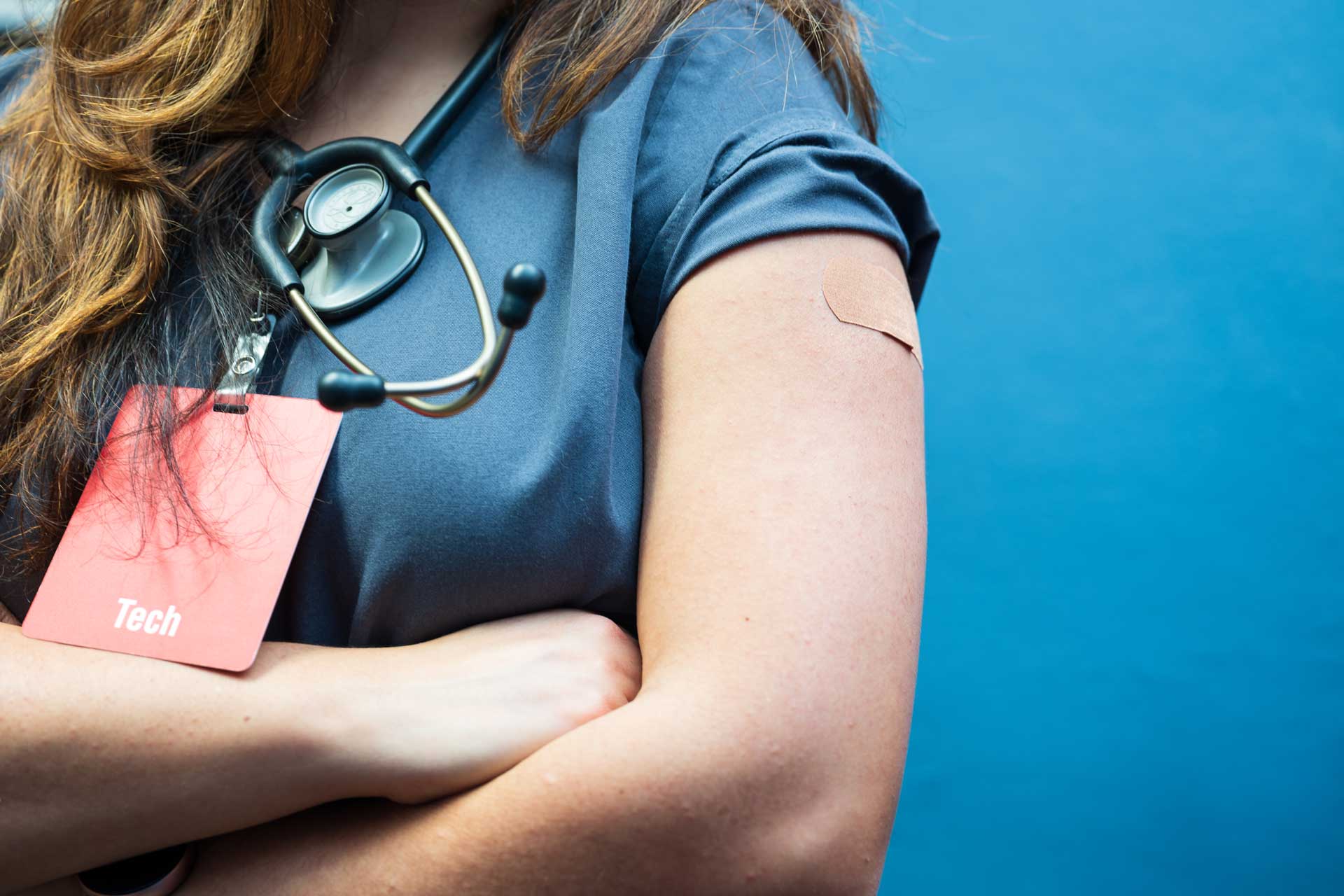
It feels like bad déjà vu, but the reality is that once again the majority of New York healthcare systems are battling the perfect storm of challenges amid a resurgence of COVID-19 cases statewide. The rising risk of the delta variant, combined with staffing shortages, and mounting mandate pressure to get vaccinations in the arms of more staff members are creating a mess for officials. Over 450,000 New York hospital workers became eligible for vaccination under Phase 1A of New York’s COVID-19 vaccination program. Hospital worker vaccination progress is self-reported by individual hospital facilities weekly via the New York State Department of Health’s HERDS survey. Currently, 79% of Mid-Hudson area hospital workers have received a complete vaccine series, with the highest percentage reported in Westchester County (85%) and the lowest (55%) reported in Putnam County. With so much information constantly fluctuating, what do you need to know about state and federal vaccination mandates, and what are the financial implications for your healthcare system?
New York State’s public health and health planning council approved emergency regulations on August 26 requiring that hospital workers be vaccinated for COVID-19, while removing religious exemptions. Vanessa Murphy, a DOH attorney said they are not constitutionally obligated to provide a religious exemption, which is also the case for the Measles and Mumps vaccine. This will be in effect for 90 days before it’s either renewed or expires.
So, what is a valid medical reason to make an accommodation for a medical worker?
For a valid medical exemption, a licensed physician or certified nurse practitioner must certify that immunization with a COVID-19 vaccination is detrimental to the health of a member of a covered entity’s personnel, based upon a preexisting health condition, and ceases to be effective if it is later found that vaccination would not be detrimental to that personnel member’s health. The nature and duration of the medical exemption must be documented in the personnel file of the member of the organization in accordance with the same timeline for the vaccination requirements, along with documentation of whatever reasonable accommodations are granted in conjunction with the exemption.
What entities does this apply to in New York State?
The requirement approved by the public health and health planning council applies to hospitals, nursing homes, diagnostic and treatment centers, adult care facilities, certified home health agencies, hospices, long-term home health care programs, AIDS home care programs, licensed home care service agencies and limited licensed home care service agencies. So, who falls under New York State’s definition of health care “personnel” in the new regulation requirements? It’s pretty all-encompassing, covering employees, students, volunteers, and any other affiliates of the organization who “engage in such activities such that if they were infected with COVID-19, they could potentially expose other covered personnel, patients or residents to the disease.” According to the state health department, these institutions are tasked with developing a plan for implementation of the mandate and any actions it will take regarding non-compliant employees. This could include firing non-compliant workers.
What’s the COVID-19 vaccination deadline for staff?
Healthcare workers at hospitals and nursing homes must receive their first vaccine dose by Sept. 27. Workers at additional entities covered by the mandate, including diagnostic and treatment centers, home health agencies, long-term home health care programs, school-based clinics, and hospice care programs, must have at least one dose by Oct. 7. Documentation of proof of vaccination must be maintained in the personnel files of each employee/affiliate of the organization.
What about federal updates?
In a bold move, President Joe Biden announced in August that he is directing all nursing homes to require their staff to be vaccinated against COVID-19 in order to continue receiving Medicare and Medicaid funding. Over 130,000 nursing home residents and 2,000 employees died due to COVID-19, according to the most recent CDC data. However, vaccination rates among nursing home workers remain low. As of mid-August, about 60% of staff per facility were vaccinated, compared to 82.8% of residents per facility.
What are the financial and emotional consequences your system could face?
Here at home, HealthAlliance of the Hudson Valley, a three-hospital system in the Westchester Medical Center Health Network, laid off an undisclosed number of workers on June 14, according to the Daily Freeman. This is just one local example of shrinking medical staff at a time when facilities are overloaded with cases and patients. Tension is running high for medical professionals on both sides of the issue. The New York State Nurses Association (NYSNA) representing more than 42,000 members in New York State, last issued a statement in mid-August. “Overall, we are seeing a crisis in hospital emergency departments that indicates a general lack of preparedness. The DOH should listen to the frontline this time not just hospital CEOs. Our healthcare workers are exhausted and traumatized. Their voices should be heard – not denied or characterized as vectors of infection- which is exactly what we are trying to avoid. When healthcare workers document what they are experiencing they must be believed. Hospitals must also ensure that new mandates do not contribute to already problematic staffing shortages. We do not want a situation where patient care is compromised because the pool of nurses and other healthcare workers continues to shrink.” Only time will tell whether or not our care system can sustain itself if healthcare organizations continue to face the arduous task of firing staff for vaccination refusal.
Sources: Daily Freeman, CDC, Health.ny.gov
